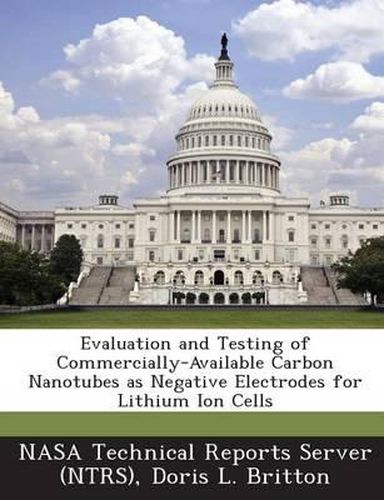Readings Newsletter
Become a Readings Member to make your shopping experience even easier.
Sign in or sign up for free!
You’re not far away from qualifying for FREE standard shipping within Australia
You’ve qualified for FREE standard shipping within Australia
The cart is loading…






Rechargeable lithium ion (Li-ion) battery technology offers significant performance advantages over the nickel-based technologies used for energy storage for the majority of NASA’s missions. Specifically Li-ion technology offers a threefold to fourfold increase in gravimetric and volumetric energy densities and produces voltages in excess of three times the value of typical nickel-based battery systems. As part of the Advanced Battery Technology program at NASA Glenn Research Center (GRC), a program on the evaluation of anodes for Li-ion cells and batteries was conducted. This study focused on the feasibility of using carbon nanotubes as anodes in Li-Ion cells. Candidate materials from multiple sources were evaluated. Their performance was compared to a standard anode comprised of mesocarbon microbeads. In all cases, the standard MCMB electrode exhibited superior performance. The details and results of the study are presented.
$9.00 standard shipping within Australia
FREE standard shipping within Australia for orders over $100.00
Express & International shipping calculated at checkout
Rechargeable lithium ion (Li-ion) battery technology offers significant performance advantages over the nickel-based technologies used for energy storage for the majority of NASA’s missions. Specifically Li-ion technology offers a threefold to fourfold increase in gravimetric and volumetric energy densities and produces voltages in excess of three times the value of typical nickel-based battery systems. As part of the Advanced Battery Technology program at NASA Glenn Research Center (GRC), a program on the evaluation of anodes for Li-ion cells and batteries was conducted. This study focused on the feasibility of using carbon nanotubes as anodes in Li-Ion cells. Candidate materials from multiple sources were evaluated. Their performance was compared to a standard anode comprised of mesocarbon microbeads. In all cases, the standard MCMB electrode exhibited superior performance. The details and results of the study are presented.